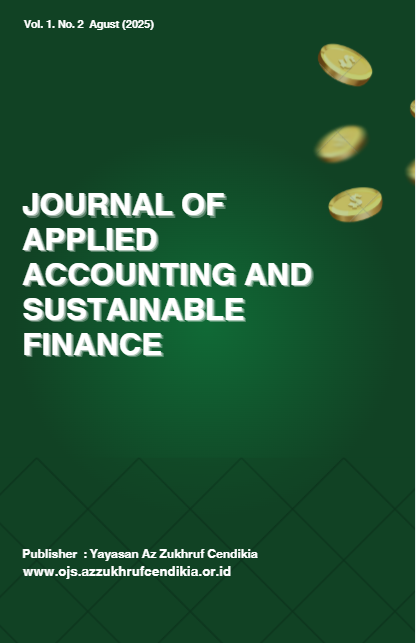Influence of Awareness, regulation understanding, and Sanctions on PKB compliance Bekasi
DOI:
https://doi.org/10.65440/aasf.v1i2.123Keywords:
Taxpayer Awareness , Understanding of Tax Regulation, Tax Sanctions, Taxpayer ComplianceAbstract
Purpose – This research is to empirically examine how taxpayer awareness, knowledge of tax laws, and the imposition of tax penalties affect the compliance behavior of motor vehicle taxpayers in Bekasi Regency.
Design/methodology/approach – This study a quantitative research approach with the unit of analysis at the individual level, specifically targeting employees in the private sector, state owned enterprise (SOEs), the education sector, civil servants, self-employed individuals, and private motor vehicle owners in Bekasi Regency particularly in the districts of South Tambun Selatan, Babelan, and Cibitung. The researcher’s involvement is kept to a minimum. A total of 365 respondents were selected using a snowball sampling technique, and data collection was conducted through the distribution of questionnaires. To analyze the data, the researcher utilized Partial Least Squares Structural Equation Modeling (PLS-SEM) version 4.0.
Findings – The findings reveal taxpayer awareness significantly and positively influences taxpayer compliance. Likewise, comprehension of tax regulations demonstrates a significant and positive relationship with taxpayer compliance. Moreover, the imposition of tax sanctions also shows a significant and favorable effect on taxpayer compliance.
Research limitations/implications – This research has a number of limitations that emerged during the data collection process. One of the main challenges was attracting some respondents to fill out the questionnaire boldly because they were concerned about risk of digital fraud. In addition, the geographic scope of the research which only covers the Bekasi Regency are and the focus of respondents being limited to motor vehicle taxpayers means that the results of this research cannot be generalized to other types of taxes or areas with more complex conditions. In addition, some elderly respondents required assistance when fulfilling out the questionnaire to ensure that the answers given truly reflected their personal opinions and minimized filling errors.
















